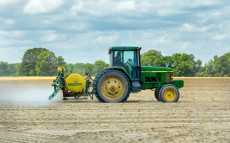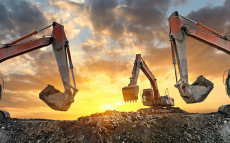- pathfindersAI
- Job Profile
Tree Trimmers and Pruners
Summary
Tree Trimmers and Pruners: An Integral Pillar in Urban and Rural Landscapes
What They Do
In an era where urbanization is expanding rapidly, the role of Tree Trimmers and Pruners cannot be overstated. These professionals are guardians of urban and rural forest health, ensuring that trees maintain their structural integrity and aesthetic appeal. Primarily, Tree Trimmers and Pruners focus on the cultivation and maintenance of trees, shrubs, and hedges. Their work involves removing excess or dead branches to prevent hazards, enhance growth, and improve a tree's appearance. Their contributions are essential in diverse environments, from city streets and public parks to private residences and commercial properties.
Job Responsibilities
The responsibilities of Tree Trimmers and Pruners encompass a broad range of tasks centered on tree health and management. Among the core duties is the assessment of trees to determine which branches require trimming to optimize the health and shape. This includes the use of various tools such as handsaws, pruning shears, and power pruners. Safety is paramount, and professionals must adhere to stringent safety standards, often operating at significant heights using ladders or aerial lifts. Additionally, they handle clean-up operations, removing and disposing of trimmed branches and debris. Tree Trimmers and Pruners also engage with clients to provide consultations and recommendations regarding tree care and maintenance.
Essential Skills
The role of a Tree Trimmer and Pruner demands a unique set of skills that blend physical dexterity with arboricultural knowledge. First and foremost, a profound understanding of tree physiology and growth patterns is essential. Physical fitness and agility are imperative due to the physically demanding nature of the job, often requiring climbing and rigorous manual labor. Precision and attention to detail are crucial when making cuts that will influence a tree's growth. Moreover, proficiency in using specialized tools and machinery is fundamental. Good communication skills are also valuable, enabling professionals to effectively interact with clients and colleagues.
Educational Pathways
While formal education is not always a prerequisite, acquiring relevant knowledge through various educational pathways can significantly enhance career prospects in this field. Many aspiring Tree Trimmers and Pruners benefit from vocational training programs that offer courses in arboriculture, horticulture, or forestry. Certificates in these areas provide practical skills and theoretical foundations necessary for the job. Some professionals may choose to pursue an associate or bachelor's degree in a related field, which can open doors to more advanced positions and specialized roles within the industry. Continuous professional development through workshops, seminars, and certifications like those offered by the International Society of Arboriculture (ISA) also bolsters a practitioner's expertise and career advancement opportunities.
Career Prospects
The demand for Tree Trimmers and Pruners remains robust, driven by the ongoing need for urban green space management and the essential maintenance tasks required for tree health. According to labor statistics, job opportunities in this field are expected to grow steadily, fueled by heightened awareness of environmental sustainability and urban beautification initiatives. Experienced professionals may advance into supervisory roles, consultancies, or start their own tree care businesses. Additionally, opportunities exist in specialized areas such as utility line clearance and arborist consultancy, further diversifying the career options within this field.
Conclusion
Tree Trimmers and Pruners are indispensable professionals in the maintenance and enhancement of our natural and urban landscapes. Their meticulous work ensures the safety, beauty, and longevity of trees, contributing significantly to environmental sustainability and urban aesthetics. With the right blend of skills, education, and experience, a career in this field promises not only steady employment prospects but also the intrinsic reward of preserving and cultivating our green spaces. As we look towards a future where environmental stewardship becomes increasingly paramount, the role of Tree Trimmers and Pruners will continue to be a vital component in the mosaic of urban and rural ecological management.
Video
Compensation
| State | Median Salary | Median Hourly | Positions |
|---|---|---|---|
| AL | 43,430 | 20.88 | 1,090 |
| AZ | 54,940 | 26.41 | 490 |
| AR | 36,710 | 17.65 | 260 |
| CA | 61,910 | 29.76 | 7,460 |
| CO | 50,510 | 24.28 | 1,150 |
| CT | 45,880 | 22.06 | 490 |
| FL | 41,580 | 19.99 | 2,910 |
| GA | 43,410 | 20.87 | 1,240 |
| HI | 58,440 | 28.10 | 250 |
| IL | 60,200 | 28.94 | 430 |
| IN | 45,370 | 21.81 | 1,180 |
| IA | 47,520 | 22.85 | 620 |
| KS | 38,980 | 18.74 | 550 |
| KY | 38,570 | 18.55 | 720 |
| LA | 36,180 | 17.40 | 640 |
| ME | 56,630 | 27.23 | 180 |
| MD | 44,100 | 21.20 | 660 |
| MI | 47,590 | 22.88 | 3,160 |
| MS | 44,920 | 21.60 | 300 |
| MO | 45,270 | 21.77 | 970 |
| MT | 49,070 | 23.59 | 170 |
| NE | 42,500 | 20.43 | 380 |
| NH | 52,790 | 25.38 | 370 |
| NJ | 50,550 | 24.30 | 2,150 |
| NM | 49,240 | 23.67 | 230 |
| NY | 58,250 | 28.01 | 2,980 |
| NC | 40,720 | 19.58 | 1,240 |
| OH | 47,300 | 22.74 | 1,810 |
| OK | 30,700 | 14.76 | 690 |
| OR | 47,500 | 22.84 | 870 |
| PA | 55,940 | 26.90 | 1,520 |
| RI | 60,770 | 29.22 | 140 |
| SC | 46,760 | 22.48 | 500 |
| SD | 50,170 | 24.12 | 220 |
| TN | 39,160 | 18.83 | 1,300 |
| TX | 40,540 | 19.49 | 1,680 |
| UT | 50,790 | 24.42 | 810 |
| VT | 49,450 | 23.77 | 320 |
| VA | 46,750 | 22.48 | 1,150 |
| WA | 61,860 | 29.74 | 930 |
| WV | 36,860 | 17.72 | 490 |
| WI | 46,800 | 22.50 | 1,390 |
| WY | 47,320 | 22.75 | 90 |
Similar Occupations
In this area you will find other occupations that are close to the one you were viewing in tasks, knowledge and work environment. If the primary job profile you are viewing isn't quite to your liking, take a look around and see what else is available.
Basic and Premium Accounts have more alternative occupations available than the Free account.

Agricultural Equipment Operators - 45-2091.00
Agricultural Equipment Operators are responsible for driving and controlling farm equipment such as tractors, harvesters, and irrigation machines to plant, cultivate, and harvest crops. They perform routine maintenance on machinery, ensuring it functions efficiently to maximize farm productivity.
-
$39,690/yr
Median Pay -
28,910
Number of Jobs

Construction Laborers - 47-2061.00
Construction Laborers perform physical tasks on construction sites, such as digging trenches, loading and unloading materials, and operating heavy machinery. They assist skilled tradespeople and are essential in ensuring projects progress smoothly and efficiently.
-
$45,300/yr
Median Pay -
1,019,090
Number of Jobs